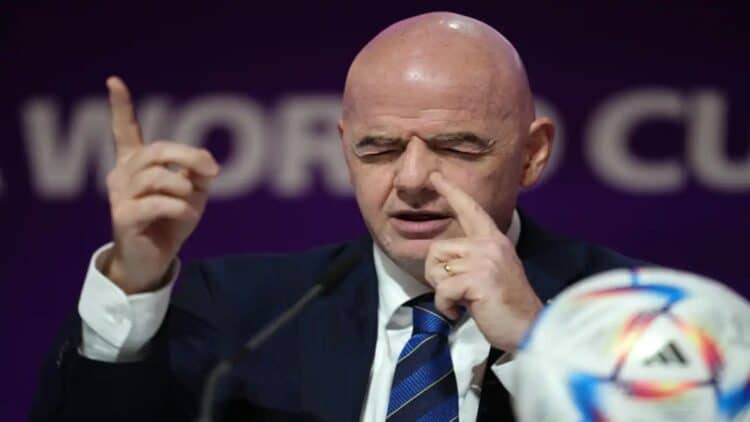Only days before the highly-touted FIFA Club World Cup, a revelation came as a surprise to organizers and observers alike. With world-renowned players and an unprecedented campaign to market tickets, bookings tumbled to all-time lows, and FIFA has no option but to employ drastic remedies. What happened, and what’s in store for the tournament?
FIFA’s Club World Cup is in crisis following ticket prices falling by 84% and the public boycotting it
FIFA’s controversial plan for an expanded 32-team Club World Cup has encountered the sand. Just a matter of days from the first game in Miami, ticket sales have been so pathetic that FIFA was forced to cut prices by a record 84%. Tickets for the first match between Inter Miami and Al Ahly dropped from $349 in December to as low as $55.75 on Ticketmaster, with some other matches going as low as $24.45, reported SportsPro and Footboom1.
“FIFA has reduced ticket prices for the opening match of the 2025 Club World Cup to a sixth of what they were for a bid to sell tens of thousands of empty seats,” SportsPro reported.
The dynamic pricing system that is supposed to generate ticket revenue has drawn attention to the lack of fan demand for the new format of the tournament.
This is how FIFA’s ambitious plans for a blockbuster tournament came to pieces at the eleventh hour
Real Madrid, Inter Miami, and Boca Juniors had all lined up to take part in the Club World Cup, which would be a good exhibition of football around the world. Nevertheless, Lionel Messi’s fame was not enough to fill the empty stands. The first game at the almost 65,000-seat Hard Rock Stadium in Miami will see a great number of empty seats on offer. Having many new sponsors, along with FIFA’s active marketing, was not able to change the icy attitude toward them.
“Hoping to lower prices, and with a new marketing campaign, win over fans – with less than a week to go before the tournament begins, however, time is already short,” SportsPro added.
The insistence of the organization that “great attendance” is the norm is hollow in the face of the specter of empty seats.
What it means for FIFA, clubs, and the future of the Club World Cup
The implications of this ticketing fiasco can be catastrophic. FIFA President Gianni Infantino has traveled far to turn the Club World Cup into an international phenomenon. With much of it in ruins-low supporter demand and fierce price slashing remain to be seen if the event will make it. Already, the tournament has been the center of court proceedings, intimidated away players, and attracted the ire of international top leagues. Some analysts believe that the rushing of the expansion of the tournament to 32 teams has watered down its prestige, and die-hard football fans find it hard to generate passion.
A number of leagues and clubs have expressed their grievances loudly against FIFA, alleging that the federation is more business-minded than concerned about the welfare of players and the health of the domestic leagues. When the tournament finally gets off the ground, the attendance numbers and fan interest will make headlines, and maybe even the discussion of decision-makers, too, because the future of the Club World Cup appears to be at a crossroads.
Therefore, if this is to occur, FIFA will be forced to go back on the format, promotion, or idea of the Club World Cup. The lackluster ticket sales call into question FIFA’s promotions and how popular the Club World Cup really does get globally. At this juncture, the Club World Cup will be best known as an annual event, not due to successful aspects but due to empty seats and last-minute decisions.


